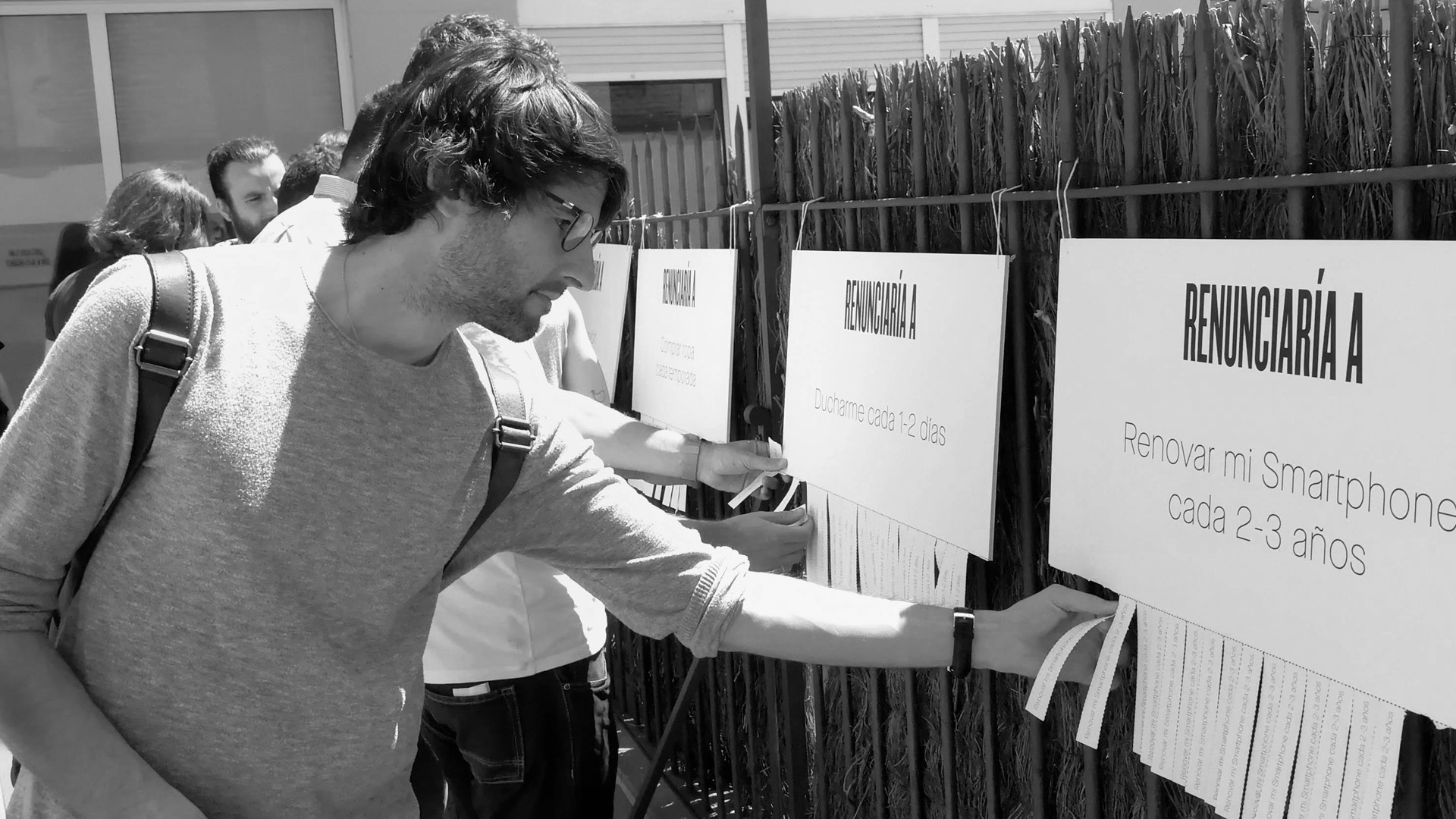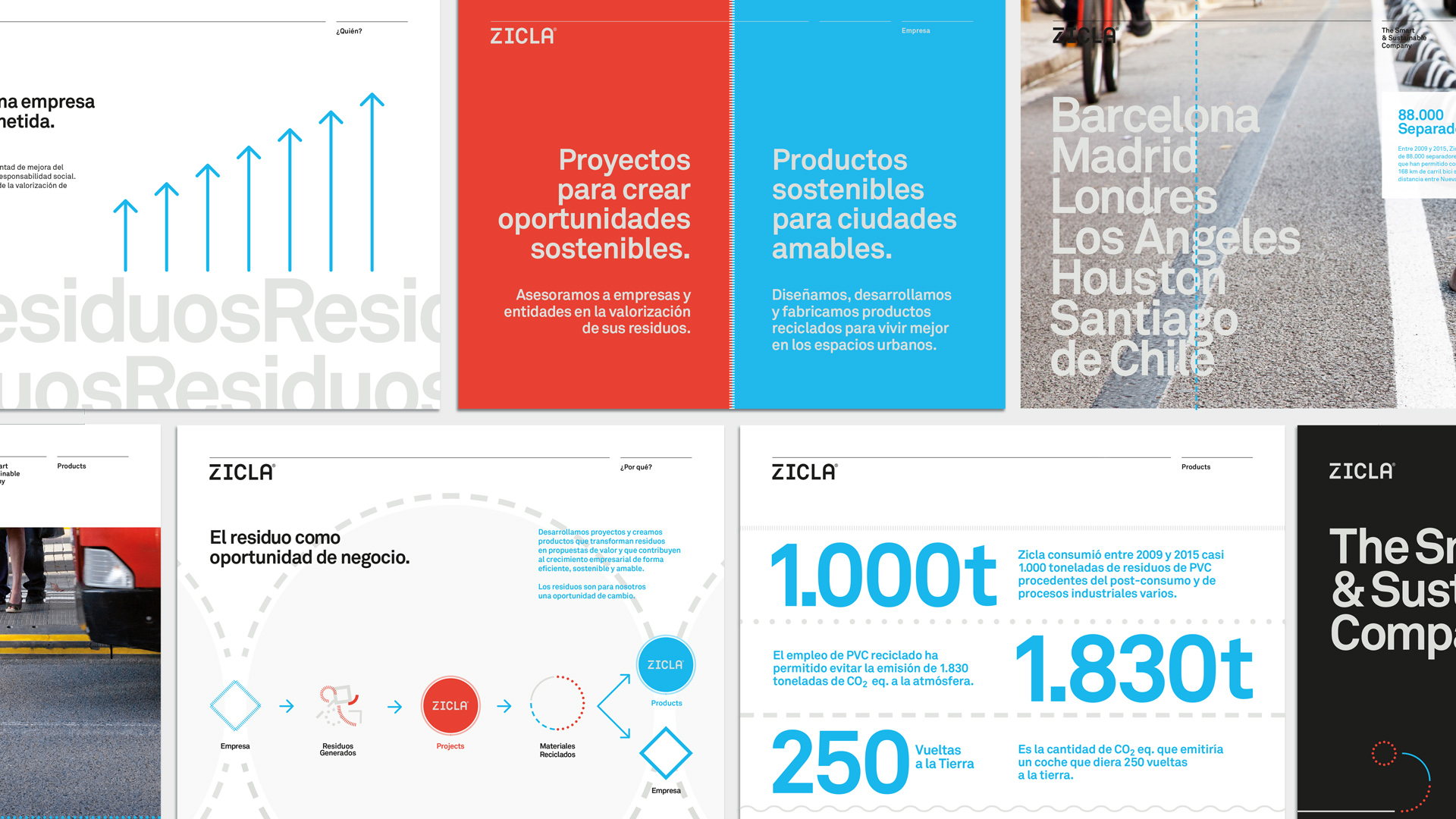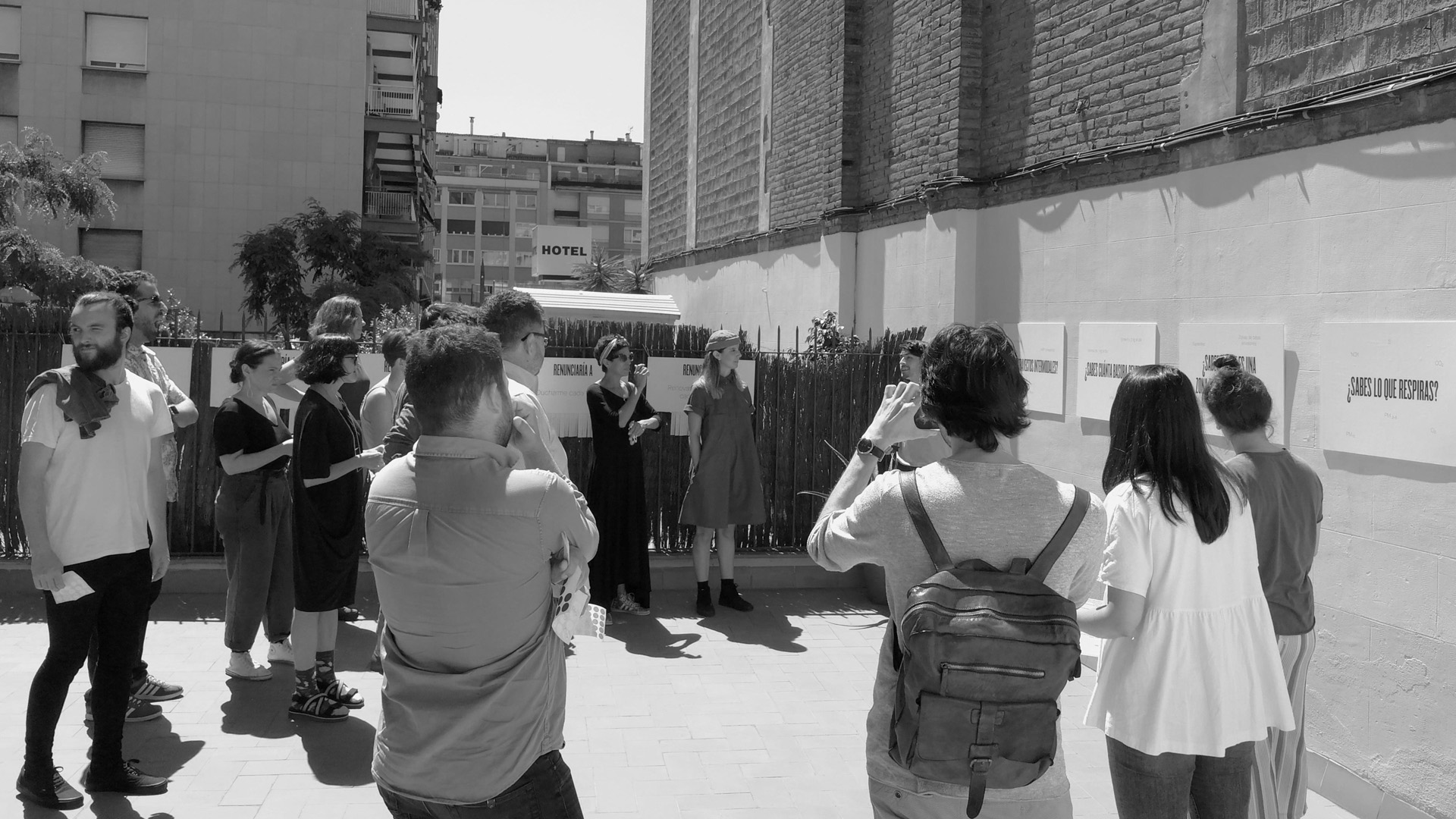Showcasing Zicla’s Branding Strategy at Barcelona Design Week 2019
On June 19th we participated, alongside our client Zicla, in Barcelona Design Week by organising an in-house event in which we shared our success case story: How to build the brand identity of a sustainable company that transforms waste into opportunities. The presentation was followed by a co-creation workshop in which we reflected on the future and needs of cities, through our actions and disposition towards change.
We so shared and co-organised the activity with the Zicla team who kindly contributed with their knowledge and experience in sustainability, mobility, accessibility and the future of cities.
During the event, we enjoyed how our attendees –a group of over 20 professionals from the design sector– actively participated by sharing their experiences and points of view, and creating a very pleasant and relaxed atmosphere.

A Brand Strategy that communicates Zicla’s Brand Value Proposition
Since 2005, Zicla has been working to transform waste, generated in cities, into new materials for the industry, products for street furnishings and traffic management solutions (i.e. urban planters, bike lane separators or accessibility platforms for public transportation).
In 2015, we started collaborating with the company to achieve its repositioning and start an internationalisation process. Thanks to the analysis and the joint work, we developed a people-centred brand strategy, communication style, design and brand culture based on innovation, which we thought would help connect with the large diversity of audiences, such as users, town halls or other business partners.
On top of this new brand strategy, we built Zicla’s brand personality and brand attributes, which we then translated into a new corporate image and storytelling. We then continued working on defining the communication arguments of their different business divisions.


Due to the large interest triggered by branding projects specifically related to the concept of sustainability, in addition to explaining Zicla’s case study, we also shared case studies of other projects where we worked around the idea of sustainability and the circular economy.
100% reusable packaging design for Lékué steam case
In 2015, under the concept “Packaging is part of the product”, we presented a special-edition packaging design targeting traditional channels, with the goal of strengthening Lékué’s corporate values: people, creativity and challenges. This appealed to the type of consumers who make decisions according to sustainable criteria.
The packaging design we proposed was characterised by being 100% reusable, with a surprise factor at the point of sale and extending its life cycle at home. A double-use packaging piece which could be used both as an apron and as a recipe book with daily ideas for a simpler and healthier diet.
That year, we were delighted to be granted the Bronze Laus in the category of Graphic – Packaging by the jury of the 45th edition of the 2015 Laus Awards.
Packaging design and Branding for es im-perfect®, a brand that fights food waste
In 2015 we started working with Espigoladors, a non-profit foundation which has been fighting food waste since 2014, while it also empowers people who are at risk of social exclusion in a transformative, participatory, inclusive and sustainable way.
The project is based on three main pillars: reducing food waste, guaranteeing access to healthy and nutritious food for people who are in a vulnerable situation and generating new opportunities by empowering people at risk of social exclusion.
Our first project with Espigoladors consisted in creating their first es im-perfect® product display case for points of sale, which revolved around the idea of second opportunities and for which we recycled used strawberry boxes. With this pretext, we took on the first branding conceptualisation phase by developing the storytelling and establishing a communication style, which they continue to use today.
Since then, we have conceptualised, designed packs and communication materials, with high social impact values, both in marketing campaigns and in campaigns alongside all kinds of private companies (Christmas gifts, personalised packs, preservation recipe books, etc.)
But it is during the past year that we carried out the most important intervention to help the foundation communicate its products: we redesigned the logo, in line with the corporate identity that we had initially created for their trademark es im-perfect®.
Brand strategy for Ametlla +, an entrepreneurial project that promotes local produce
Ametlla de Mallorca is a project started by five female entrepreneurs who were enthusiastic about promoting a local product, which they considered had great potential in the food industry: Mallorca’s almond. Facing a scenario in which their almond crops were no longer profitable, especially compared to the benefits they would get by selling off the land for construction purposes, they were still determined to reposition the almond as the traditional food it once was within the culinary culture of the island, while encouraging almond tree plantation and the touristic sector
One of their star products was Ametlla +, an almond-based preparation used to cook different traditional quality recipes in a shorter time frame, for which we had developed the corporate identity and strategy. We based it on a brand value that both combined Mallorca’s tradition and culture, and also transmitted the key attributes of the product: local, prime-quality and innovative.
With these attributes in mind, we developed the new graphic image and packaging of the Ametlla + branding, inspired by one of the most representative elements of the culture of the Balearic Islands, the “llengües” (tongues) fabrics, omnipresent in most Mallorcan homes.

Co-creation workshop: A barometer for our attitude towards change
As we have mentioned in the beginning of this post, our presentation was divided into two parts. The first part was a conference about the Zicla case study and other NOMON DESIGN projects championing sustainability and the circular economy. For the second part, we used our outside patio space to stage a visual barometer which would enable us to reflect on our attitude towards change.
For that purpose, we defined a series of blocks that revolved around a specific theme and that we materialised in different spaces, in which we had to perform a specific action and that we captured in a graphic piece.
The first block allowed us to visualise and quantify the attendees’ profiles. For example, demographic data such as age and sex, or other data, which were much more relevant for us, such as the way they had arrived to our office (walking, public transportation, motorised or non-motorised means of individual use). This other information was interesting because it allowed us to start thinking about how our actions can shape the changes in our current models of cities.
In the second block, we pondered about how the language could be changed when referring to climate change. We studied as an example the decision of The Guardian newspaper to update the newspaper’s style guidelines and change the term “climate change” and introduce the concept of “crisis” or “climate emergency”. Based on this, we quantified our opinion and perception around the situation we are currently living.
Then, in the third block, we focused on the responsibility of each one of us individually to take care of the environmental quality of our cities. We thought about how our decisions directly affect our environment. We suggested different scenarios, actions and habits that we would be willing to modify in our daily lives such as changing our diet, reducing the amount of clothing that we purchase, using alternative, more sustainable materials, not renewing our smartphones every other season, or perhaps avoiding journeys by plane when we can travel by other means of transportation.

In the fourth block, we looked at how we influence cities, their transformation, taking as an example those new concepts that have recently emerged related to mobility. At this point, the Zicla-team stepped in to explain and exemplify concepts such as car sharing, shared VMP or park & ride, among others.
And finally, in the fifth block, we focused on how design and the designer can represent a lever of change. We shared examples of sustainable products and materials whose use we could promote –whenever possible– when proposing and defining projects for our clients. Zicla provided raw materials with which they manufacture their final products (i.e. urban planters, bike lane separators or accessibility platforms for public transportation).
In retrospective, we think the event was a success, since we had to increase the number of available tickets to welcome everyone interested, while the feedback of the attendees was very positive. We so fulfilled our main objective: to provide an interesting presentation for design professionals which also would help us reflect together on the importance of our actions and decisions to shape the future of cities.
Furthermore, it was a privilege to partner up with a company such as Zicla, taking advantage of their knowledge and experience, and above all, to enjoy their great capacity for communicating, explaining and exemplifying all the concepts that we pinpointed during our event. We are already excited about the next edition of Barcelona Design Week …
